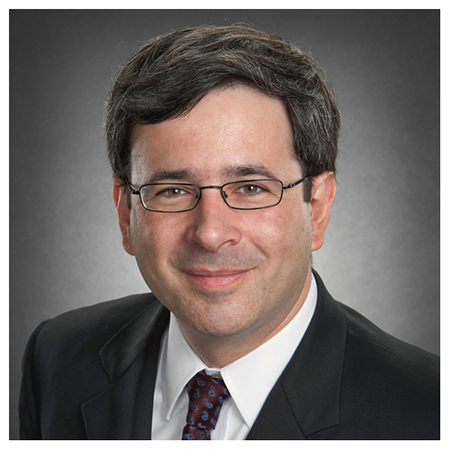Non-Narcotic Pain Meds After Sinus Surgery
 The estimated “economic burden” of prescription opioid misuse in the U.S. is nearly $80 billion a year, including the costs of health care, lost productivity, addiction treatment and criminal justice involvement. Amidst the backdrop of an opioid epidemic, healthcare systems and their physicians have begun to rethink options for pain management in postoperative care. Martin J. Citardi, MD, FACS, professor and chair of the Department of Otorhinolaryngology-Head and Neck Surgery at McGovern Medical School at UTHealth Houston, was the senior author on a randomized, controlled trial, that sought to explore if nonsteroidal anti- inflammatory drugs (NSAIDs) are effective for postoperative pain control after functional endoscopic sinus surgery and septoplasty. The successful management of postoperative pain in patients following these surgeries helps to reduce pain and to improve patient outcomes and satisfaction.
The estimated “economic burden” of prescription opioid misuse in the U.S. is nearly $80 billion a year, including the costs of health care, lost productivity, addiction treatment and criminal justice involvement. Amidst the backdrop of an opioid epidemic, healthcare systems and their physicians have begun to rethink options for pain management in postoperative care. Martin J. Citardi, MD, FACS, professor and chair of the Department of Otorhinolaryngology-Head and Neck Surgery at McGovern Medical School at UTHealth Houston, was the senior author on a randomized, controlled trial, that sought to explore if nonsteroidal anti- inflammatory drugs (NSAIDs) are effective for postoperative pain control after functional endoscopic sinus surgery and septoplasty. The successful management of postoperative pain in patients following these surgeries helps to reduce pain and to improve patient outcomes and satisfaction.
In this randomized controlled trial, patients undergoing endoscopic sinus surgery with or without septoplasty at MH-TMC main operating rooms and ambulatory surgery center, were assigned to receiving diclofenac sodium (non-narcotic pain medicine) three times daily as needed, or hydrocodone acetaminophen (narcotic) every 4-6 hours as needed. This was a non-blinded study. A total of 74 patients underwent surgery and reported pain scores at postoperative days 1, 2, 3, and 5. The primary endpoint for this trial was overall pain at postoperative day 1. Secondary outcomes included overall pain, least and most severe pain at postoperative day 2, 3, and 5 as well a number of bleeding complications requiring a trip to the emergency room or clinical intervention.
Key findings from the trial were that postoperative pain scores were not statistically different between groups on postoperative days 1, 2, 3 and 5 and that no postoperative epistaxis (a potential complication associated with diclofenac) requiring direct treatment was reported in either group. While the study was underpowered for a non-inferiority trial, the current data suggests that routine prescriptions for narcotic medications after endoscopic sinus surgery are not warranted. Also, evidence from this study suggests that an accelerated trend to reduced prescriptions of postoperative narcotics is warranted.
Promisingly, the healthcare field is grappling with the reality that many opioid-related deaths can be traced to over-prescription of narcotics for pain control after surgery.2 Important studies, like this trial conducted at MH-TMC are important steps toward building scientific literature that demonstrates non-narcotic pain medication as an effective alternative for postoperative pain management.
Dr. Citardi and co-authors suggest that additional studies are needed with larger samples to investigate the potential superiority of non-narcotic pain medicine to narcotic medication in patients who have undergone endoscopic sinus surgery and septoplasty.
Reference
Saini AT, Jiang ZY, Starr NC, Talmadge, J, Schamle I, Radabaugh P, Yao WC, Luong AU, Citardi MJ. Are nonsteroidal anti-inflammatory drugs effective enough for postoperative pain control after functional endoscopic sinus surgery and septoplasty? A randomized, controlled study. International Forum on Allergy & Rhinology. 2022; 12: 910-916 (https://doi.org/10.1002/alr.22941).